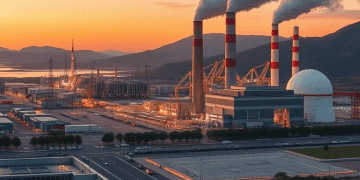FRANKFURT (Reuters) – Industrial production in the Euro zone fell more than anticipated in December, signaling that the sector’s two-year recession is continuing despite some indications of a potential stabilization.
According to data released by Eurostat, output in the 20 nations using the euro declined by 1.1% from the previous month, underperforming expectations of a 0.6% drop. Key industrial economies such as Germany and Italy saw significant contractions, with declines of 2.9% and 3.1%, respectively.
The industrial sector in Europe has faced persistent challenges, including high energy costs, reduced demand from China, increased global competition, and waning interest in older car models. Compared to December of the previous year, output was down by 2.0%, with the production of capital goods falling sharply by 8.0%.
While some sentiment indicators suggest possible stabilization in the industry, new U.S. tariffs on steel and aluminum, along with the potential for additional trade barriers, could further impact the sector. Tariffs on China may also affect Europe, as Chinese products seek new markets, potentially displacing locally produced goods.
In December, capital goods output decreased by 2.6%, and intermediate goods production fell by 1.9%. However, there was a significant increase in consumer goods output, partially offsetting the overall decline.
Euro zone growth has remained stagnant for much of the past year, as consumer spending has slowed, partly influenced by concerns over the struggling industrial sector, a major source of employment.
Stay informed on supply chain report news insights at The Supply Chain Report. For more on international trade, see ADAMftd.com for free tools.
#EurozoneEconomy #IndustrialOutput #EconomicDecline #GlobalTradeImpact #MarketChallenges















